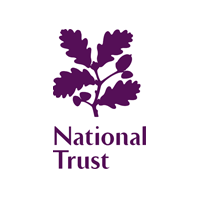 THE NATIONAL TRUST – ROSELAND AND VERYAN BAY
THE NATIONAL TRUST – ROSELAND AND VERYAN BAY
… a new volunteer group has started on the last Thursday of every month; our June newsletter reports one task done and others in store …
Did you know that the Rangers’ work involves dormouse surveys? It’s no wonder they need more people to help achieve their conservation goals. At the first meeting in April new volunteers built 50 dormice nest boxes in the courtyard at Porth. These summer nest boxes are timely because the dormouse wakes up in late April after a long hibernation. Learning about the dormouse whilst taking practical action to help protect and sustain this endangered mammal is the kind of work we’re planning for the new group.
An image of this sleepy little mammal is only in our minds eye because the common dormouse, protected by law across the UK, is in decline. But large numbers of nest boxes, carefully situated, can boost populations and be an effective monitoring and survey tool. To be a dormouse detective you must recognise the unique way it gnaws through a hazelnut shell to tuck into its favourite food. A dormouse-opened nut has a regular, smooth round hole; you may see tooth marks spiral off the hole as the dormouse rotates the nut to scoop out and enlarge it. Rangers will look for these on the ground in autumn and for nests in the boxes in summer.
Ideal homes for dormice are available in Roseland’s old woodland habitats and the nestboxes are set up in batches in well-researched sites. The dormouse has not been seen this far west for 10 years, despite recent findings along the A30 between Bodmin and Okehampton, where brave dormice are known to cross the road!
Coastal sites provide a variety of conservation tasks. Cutting and raking bracken on the Blouth, between Kiberick and Caragloose, helps to restore plant diversity which then supports more wildlife. Volunteers can get involved in pulling ragwort in July and August, an essential but time consuming job. Ragwort grows aggressively (and is poisonous to some mammals) on the Dodman and on an old arable field next to St. Mawes Allotments. A field near Towan could become a flower meadow; it’s already home to the rare solitary Long Horned Bee. The new group will cut and rake the grass there to help decrease nutrients and improve the diversity of wild flowers which then provide more nectar for bees and butterflies.
If you like the sound of this work, please contact harriet.davies@nationaltrust.org or call the Porth office on 01872 580553. Workdays run from 10 am to 4 pm on the last Thursday of every month.

